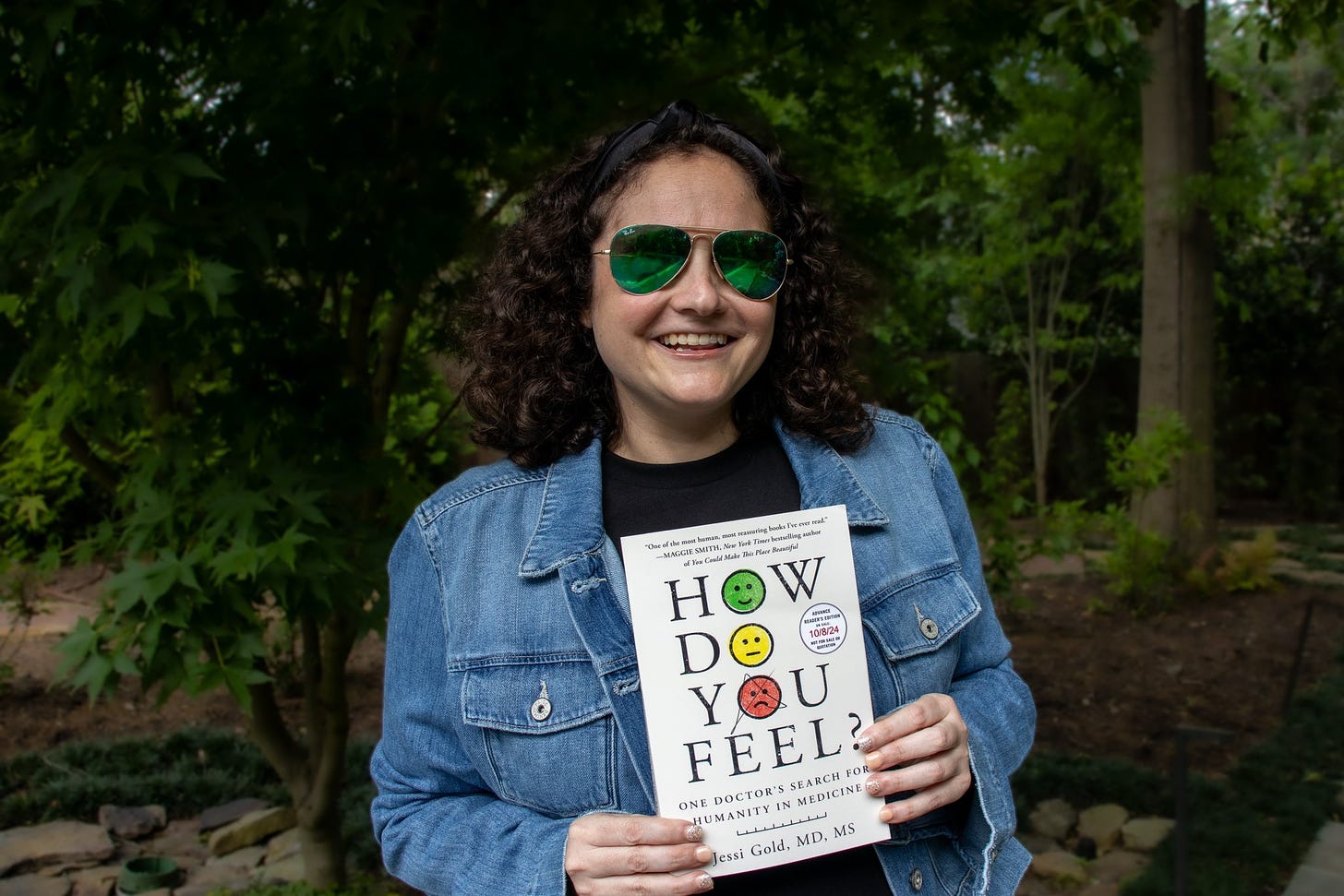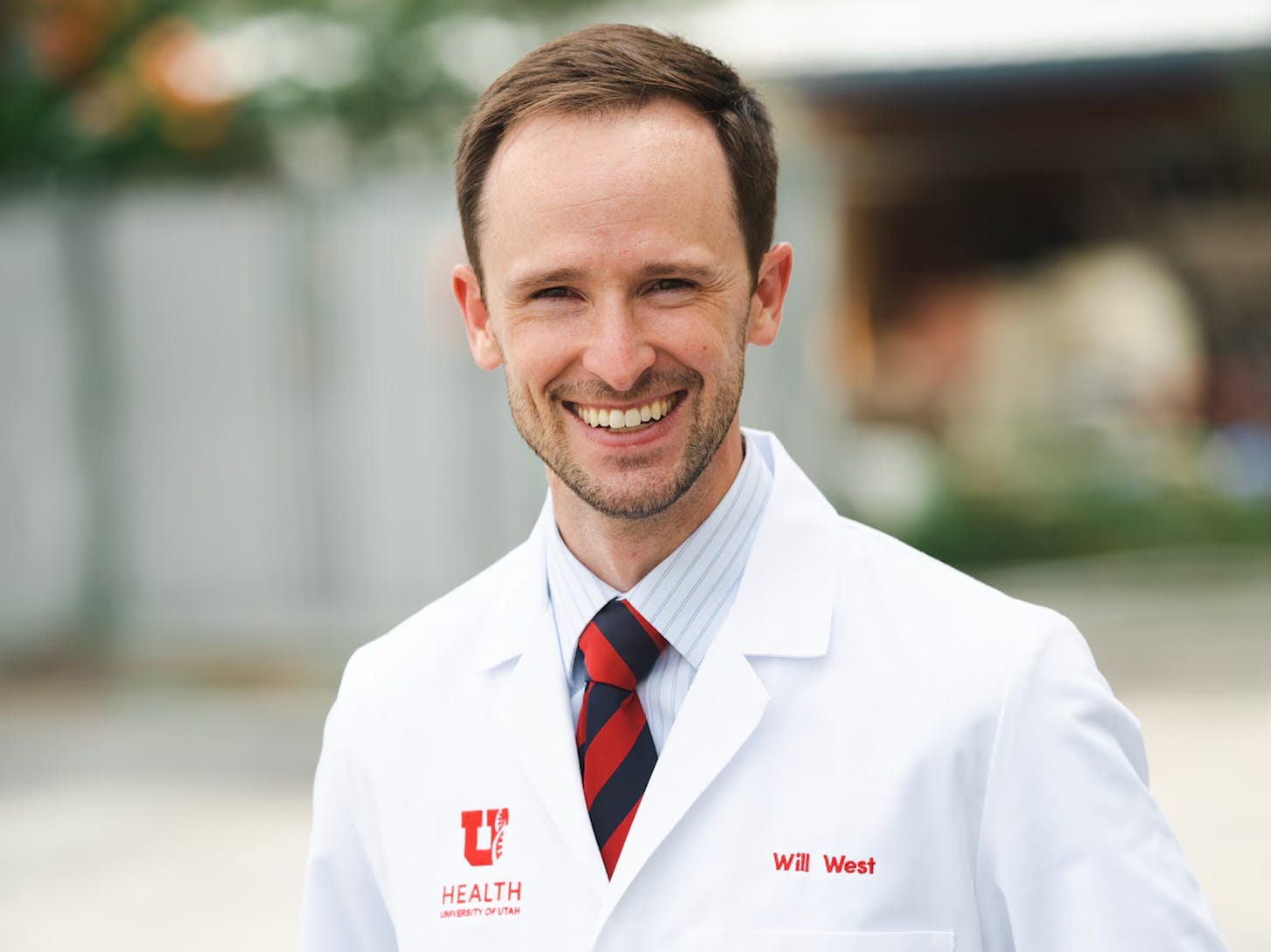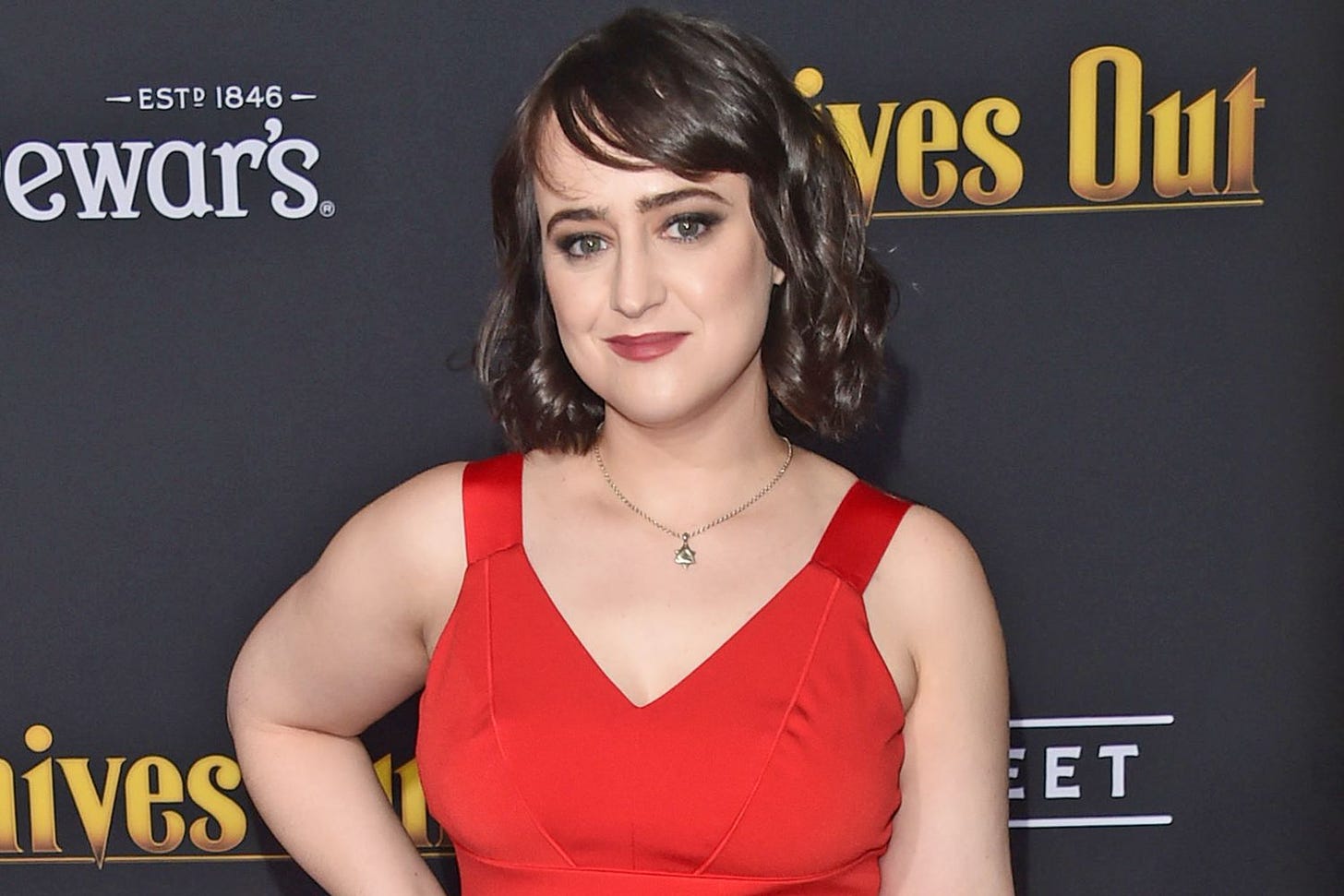

Discover more from Depresh Mode
Saddie Brains Are Physically Different Than Normie Brains
Also, some pretty bleak information on mental health in the medical profession.
Note: this newsletter contains news about suicide.
This newsletter is free. I think Substack would rather I charge you money, which is understandable and not what I wish to do. But it does take time and effort to provide the world with the newsletter and the Depresh Mode podcast.
If this enterprise can’t raise enough money from listeners/readers, I swear to God, I’ll turn this show around. Don’t think I won’t, mister. If you’ve already donated, thank you. If not, go here, pick a level that works for you, then select DEPRESH MODE from the list of shows. And thank you.
Dr. Jessi Gold on burnout, perfectionism, and the mental health wreckage of covid
My guest on the show this week is Dr. Jessi Gold, a psychiatrist, professor of psychiatry, and author of a new memoir, How Do You Feel? It’s full of characters, mostly composite, one being Jessi, who answer the titular title thusly: NOT GREAT.
The book takes place during the initial wave of covid, with the closures and the fear and, of course, the deadly disease that was running rampant all over the world killing people. Covid exacerbated a pretty huge mental health problem that was already extant within the community of medical providers. Not only were doctors and nurses experiencing depression and overwhelm and burnout, just like any other humans, but the distress was made more acute by being on the inside, taking their own lives into their hands to do their job. Further complicating matters is the pressure these people have - either from within or from the world they live in - to be perfect and invincible. Which is impossible and thus the further agitation.
The problems she describes are not gone, of course, because covid isn’t gone and the predilection toward impossible standards predate the dang pandemic in the first place.
Interesting conversation. Check it out.
Speaking of, well, exactly the item above.
The Washington Post has coverage of the death by suicide of Will West, an ophthalmology resident. It details the incredible stress West was under and how he worried that he simply did not have sufficient training to succeed or sufficient rest to even function. West, like many residents, was likely working 80-hour weeks for little money, and was in his third year of doing so. And he existed in a world where getting help wasn’t just discouraged, it could be incredibly costly to one’s career.
Doctors who receive mental health care may have to report it when they apply for jobs, medical licenses or insurance. The uncertainty of how that information will reflect on them can leave many hesitant to seek help, said Stefanie Simmons, chief medical officer at the organization Feist co-founded in Breen’s name, the Dr. Lorna Breen Heroes’ Foundation.
“You are facing the decision of whether to put your future career, which is often your mission in life to care for others and use your talents to do that, at jeopardy by taking care of yourself in a way that you know you should be,” Simmons said.
Something has to be done. I have no idea what that something is or how it would be done.
The WaPo article runs one of two letters West left behind. It’s moving and informative but I would advise a huge content warning on it, because it’s heavy.
The brains of people with depression are different
The team began by mapping networks over time in six people with major depression and 37 healthy controls. They found that the salience network, which includes brain regions in the frontal cortex and striatum, was almost twice as large on average in people with depression. This network is involved in reward processing and determining what to pay attention to. The size of the salience network did not change over time in people with or without depression. Nor did it relate to depression symptoms in people with depression.
To confirm that a larger salience network is associated with depression, the team mapped brain networks in 135 more people. In this larger group, the salience network was significantly larger than in healthy controls. The enlarged salience network led to a decrease in the size of neighboring networks.
Asia and Australia will fuse in 450 million years. Set your calendar.
Ross Andersen takes a look into the far future with an article about efforts to determine what’s going to happen way, way, a long way from now.
I went 3, 4, and 5 billion years into the future, by which time the Milky Way will have merged with the Andromeda galaxy. Together, the two will gobble up all the other galaxies in our local, gravitationally bound group. Because the universe is expanding, everything beyond this consolidated mega-galaxy will recede away, leaving it to float alone like an island in a void. The longest-lasting of its stars will shine reddish-orange for trillions of years. Eventually, they’ll twinkle out, and only a black hole will remain. It, too, will evaporate, but over a period of time so long that expressing it in years is comical. The number runs for hundreds of digits.
Mara Wilson on Sleeping with Celebrities
Yep, THAT Mara Wilson, from all those movies when she was a kid! But now she’s a grown-up and wants to help you get to sleep.
You remember Mara Wilson as a young girl starring in films such as Matilda, Mrs. Doubtfire, and Miracle on 34th Street. You probably don’t remember her in Idyllwild Arts Academy, because that was not a film but an arts-based boarding school in California and you probably didn’t go there with her. In this languid and relaxing interview, Mara shares her stories and experiences at a school where, unlike her films, there was no telekinesis, Robin Williams dressed up like a lady, or real Santa Clauses.
















Thank you for highlighting the urgent need for change in the culture of medicine and in the laws and credentialing processes that keep people from getting the help they need.